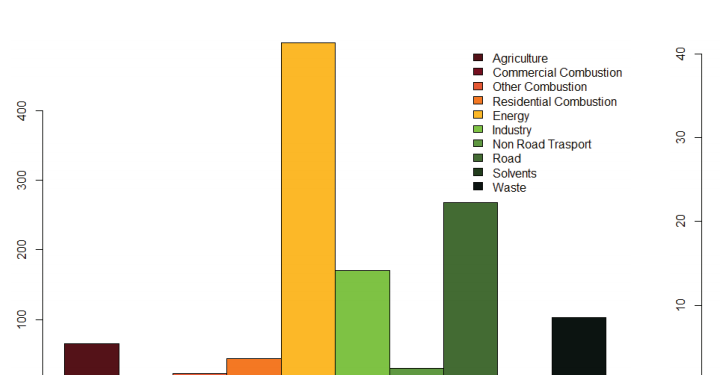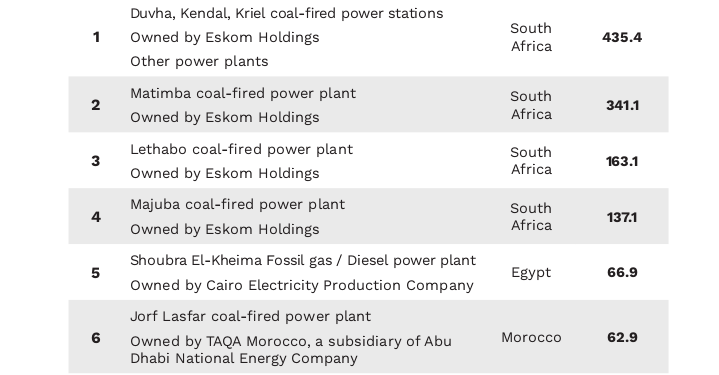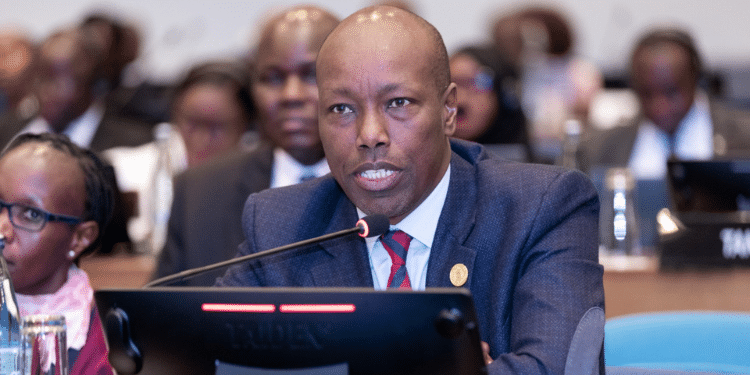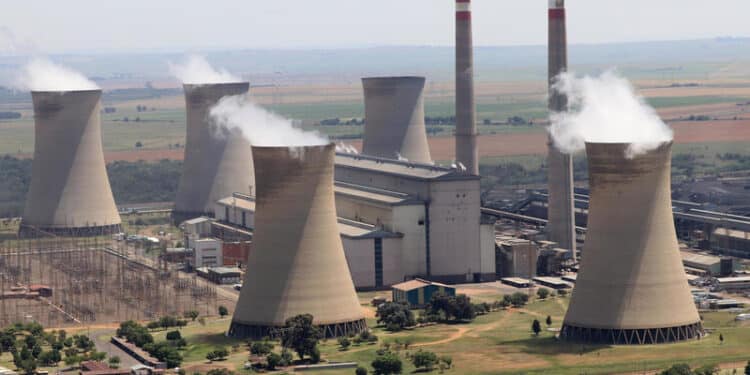Egypt, Nigeria, and South Africa have emerged as Africa’s most polluted countries.
This is in terms of air pollution disease burden, with profound health consequences for Africa and exacerbated impacts on climate change.
A report prepared by Greenpeace Africa and Greenpeace MENA revealed that Africa records up to 1.1 million premature deaths linked to air pollution yearly.
“Egypt, Nigeria, and South Africa consistently exhibit large disease burdens, with the highest mortality linked to fossil fuel air pollution in these nations,” the report read in part.
The report titled “Major Air Polluters in Africa Unmasked,” revealed that the biggest sources of air pollution in Africa are Nitrogen Dioxide (NO2), Suplhur Dioxide (SO2).
South Africa, Nigeria and North African nations came out as the large NO2 emitters.

South Africa Leads in NO2 & SO2 Emissions
Furthermore, the report detailed that Africa is home to some of the worst NO2 and SO2 hotspots in the world, all of which are primarily linked to thermal power plants.
According to the report, many of the emission hotspots identified align with thermal power plants, cement plants, metal smelters, industrial zones, or urban areas.
Six of the world’s ten largest NO2 emission hotspots identified in this analysis were found in Africa, all of these are in South Africa.
“The ten largest nitrogen dioxide point sources identified in Africa are all thermal power stations, nine of which are in South Africa, the tenth is Azito and Vridi CIPREL (Compagnie Ivoirienne de Production d’Electricité) Power Plants in Côte d’Ivoire,” the report read in part.
Besides, two of the world’s ten largest SO2 emission hotspots identified in this analysis were found in Africa, and again, these are both in South Africa.
Of the ten largest SO2 point sources identified in Africa, nine are thermal power stations and one is linked to a smelter complex in Mali.
Four of the power plants are located in South Africa, two each in Morocco and Egypt, and one in Zimbabwe.
Also Read: COP 28: Collaboration Crucial to Tackling the Climate Emergency
North, West & East Africa
In North Africa, emissions data suggests that the sector contributing most to NO2, volatile organic compounds and SO2 emissions is the energy sector.
Also, fuel burning at home emits most black carbon.
Further, in West Africa, the sector contributing most to nitrogen dioxide and black carbon emissions is residential combustion.
“The energy sector emits most volatile organic compounds and SO2 emissions, and these emissions are closely related to oil are gas infrastructure in Nigeria,” the report said.
In East Africa the sector contributing most to NO and black carbon emissions is residential combustion.
The energy sector emits most Non-Methane Volatile Organic Compounds (NMVOC), and industry contributes most SO2, emissions.
How to Stop Air Pollution
The report proposed actions that governments and legislators must take to address air pollutant emissions to improve air quality in Africa.
Governments are advised to enact comprehensive laws for ambient air quality management and establish national air quality standards.
This should aim at achieving continuous improvement and air quality aligned with the science-based WHO guidelines.
According to the report, the government should accelerate the development of air quality monitoring networks and strengthen existing ones to enhance estimates of population exposure to harmful air pollution.
“The most vulnerable communities should be prioritized. These networks must provide transparent and timely access to data, with data reported in unambiguous physical units, at known locations, with good temporal resolution and direct online public access,” reads the report.

Other Recommendations
Further, the states should monitor and report air pollutant emissions from facilities responsible for significant air pollution.
They should equally develop publicly available and independently verified pollutant release and transfer registers (PRTRS).
“Governments should promote clean, renewable and affordable cooking solutions with evidence-based policies that avoid fossil and solid fuels, meet local cultural, social and gender needs, and which are supported by adequate funds,” it reads.
The report recommends urgent steps to decrease reliance on coal and oil and make a just transition towards renewable energy, which both people and the climate.
Also Read: Kenya to Engage Private Sector to Address Climate Crisis
Urgent action is also needed to ensure the quality of fuels used in Africa meets the best international environmental.
“For African national governments, in collaboration with the international community and global north: to invest in sustainable, climate-friendly energy projects while phasing out environmentally harmful, high-emission industries that have negative impacts on public health and the climate,” the report said.
Governments should also take urgent steps to end oil and gas production, flaring and the use of fossil fuels in energy generation, and to achieve net-zero emissions by 2050.
Recommendations to South Africa’s Government
South African government is advised to uphold the Pretoria High Court judgement of the ‘Deadly Air’ litigation and implement the Highveld Priority Area Air Quality Management Plan.
The government was told to consider exemptions related to already weak air pollution and decommission coal-fired power stations reaching the end of their life.
Besides, governments must take stronger actions to reduce waste generation, prohibit the burning of waste, stop waste colonialism, and to provide access to effective means of waste management.








































































